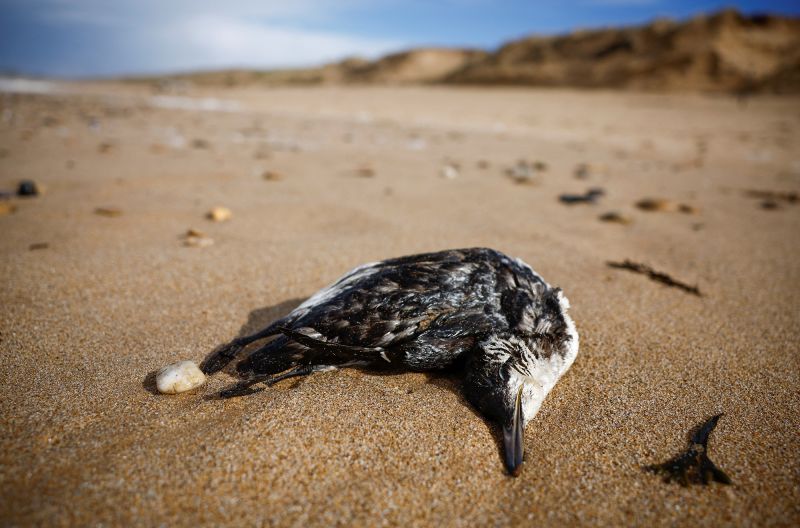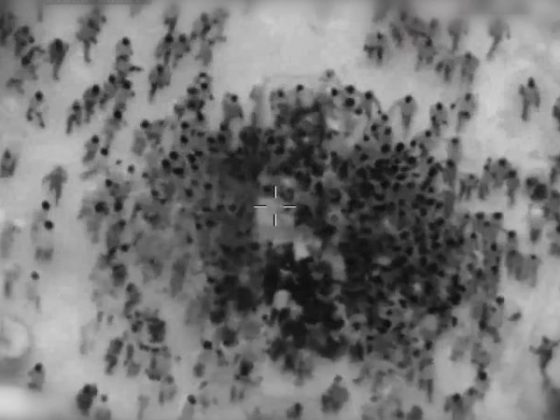Hundreds of seabirds have been found dead on French Atlantic beaches, exhausted by unusually heavy winter storms that prevent them from feeding, environmentalists said.
More than 500 common guillemots – seabirds related to penguins and puffins – have been found dead along the French Atlantic coast since the year began, French League for Birds has estimated.
Antoine Prevel, a volunteer for the nonprofit Sea Shepherd France, said guillemot beachings happen regularly in winter, but not to the scale of the past weeks.
Scientists say it is likely the birds died from exhaustion due to difficult conditions at sea.
“Climate change is an indirect cause, as it increases the frequency and intensity of storms, particularly winter storms, which are the main reason for massive strandings of seabirds,” said Jerome Fort, a scientist from France’s National Center for Scientific Research.
Poisoning by micro plastics and chemical contamination can also weaken the birds, and the fish they prey on have become rare and relocated closer to shore due to climate change and overfishing, Fort added.
Guillemots cannot survive without food for two or three days, as they have few energy reserves and need to feed almost constantly.
“In storms like we have seen recently, these birds find it hard to feed properly and will die of exhaustion,” Fort said.


